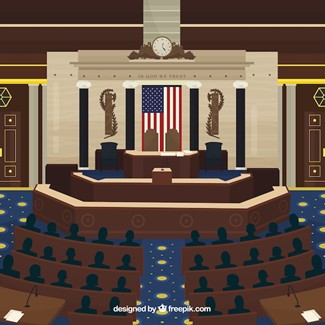
When Judicial Transparency Meets Employment Law New York’s Top Court Supports the Notion of Sharing is Caring
November 20, 2025
To Post or Not to Post, Are you Protected?
December 11, 2025November 11, 2025
By Ty Hyderally, Esq., Francine Foner Esq.
Should non-minority employees have the same rights as minority employees under the New Jersey Law Against Discrimination, N.J. Stat. Ann. §§ 10:5-1 et seq. (NJLAD)? That question is currently under review by the Third Circuit Court of Appeals in the matter of Christopher Massey v. Borough of Bergenfield (3rd Cir. 2024) (Dkt. No. 24-2761).
Bergenfield Deputy Chief Christopher Massey, who is Caucasian, brought claims of alleged harassment, discrimination and retaliation in violation of the NJLAD by individual Defendants, based on their selection of a Palestinian, Muslim male to serve as Chief of Police, instead of Deputy Chief Massey. On September 11, 2024, the New Jersey District Court granted the Defendants’ Motion for Summary Judgment, dismissing Deputy Chief Massey’s claims under the NJLAD, because he had “not established background circumstances to support a prima facie case of reverse race discrimination.” Deputy Chief Massey appealed the decision to the Third Circuit Court of Appeals.
Claims brought by non-minority plaintiffs for discrimination under the NJLAD in New Jersey State Courts have traditionally been referred to as “reverse discrimination” cases. Non-minority plaintiffs have long been required by New Jersey State Courts to satisfy an additional hurdle not imposed upon minority plaintiffs of proving that their employer is an unusual one that discriminates against the majority, known as the “background circumstances test.”
However, on June 5, 2025, in its decision in Ames v. Ohio Dep’t of Youth Servs., 605 U.S. 303, 145 S. Ct. 1540, 221 L. Ed. 2d 929, 2025 U.S. LEXIS 2198 (2025), the United States Supreme Court eliminated the requirement of any background circumstances test for majority plaintiffs suing for discrimination under Title VII, the federal anti-discrimination statute. New Jersey State Courts have traditionally looked to federal courts’ analysis of discrimination claims under Title VII when assessing discrimination claims under the LAD. Thus, the background circumstances test for claims under the NJLAD by majority plaintiffs in New Jersey State Courts has come under scrutiny, in light of the Ames decision.
During oral argument held on October 28, 2025, before an appeal panel of the Third Circuit Court of Appeals, Deputy Chief Massey’s counsel argued that non-minority plaintiffs should have the same burden as minority plaintiffs when claiming discrimination under the NJLAD. Deputy Chief Massey’s counsel began by acknowledging that “For years courts applying the New Jersey Law Against Discrimination and Title VII have applied the background circumstances test . . . requiring non-minority plaintiffs to prove that the employer is an unusual one that discriminates against the majority.” However, he then noted that given that New Jersey Courts’ reliance on federal courts’ interpretation of anti-discrimination statutes, such as Title VII, it is fair to assume that the New Jersey Supreme Court will adopt the Ames standard and hold that non-minority plaintiffs will no longer be required to satisfy the background circumstances test under the NJLAD.
The panel also questioned whether they should certify the question to the New Jersey Supreme Court to resolve and whether the continuation of the background circumstances test would be inconsistent with the equal protection clause of the Constitution. The Court pointed to Justice Thomas’s footnote in Ames in which he stated that “the ‘background circumstances’ rule is also plainly at odds with the Constitution’s guarantee of equal protection. That guarantee ‘cannot mean one thing when applied to one individual and something else when applied to [another].’ Ames at 314, citing Students for Fair Admissions, Inc. v. President and Fellows of Harvard College, 600 U. S. 181, 206, 143 S. Ct. 2141, 216 L. Ed. 2d 857 (2023).
Whether the Third Circuit renders its own opinion in Massey, or certifies this question to the New Jersey Supreme Court, having this issue definitively decided is needed, as more “reverse discrimination” cases will inevitably be filed under the NJLAD following the Ames decision.
If you feel that you are the target of discrimination, harassment, whistleblower retaliation, or some other issue in the workplace, or if you have any questions regarding your rights as an employee, you should seek out an experienced attorney who concentrates in employment law. Our firm has been concentrating in employment law for over twenty-two (22) years!
En nuestra firma hablamos español. This blog is for informational purposes only. It does not constitute legal advice and may not reasonably be relied upon as such. If you face a legal issue, you should consult a qualified attorney for independent legal advice about your particular set of facts. This blog may constitute attorney advertising. This blog is not intended to communicate with anyone in a state or other jurisdiction where such a blog may fail to comply with all laws and ethical rules of that state or jurisdiction.


